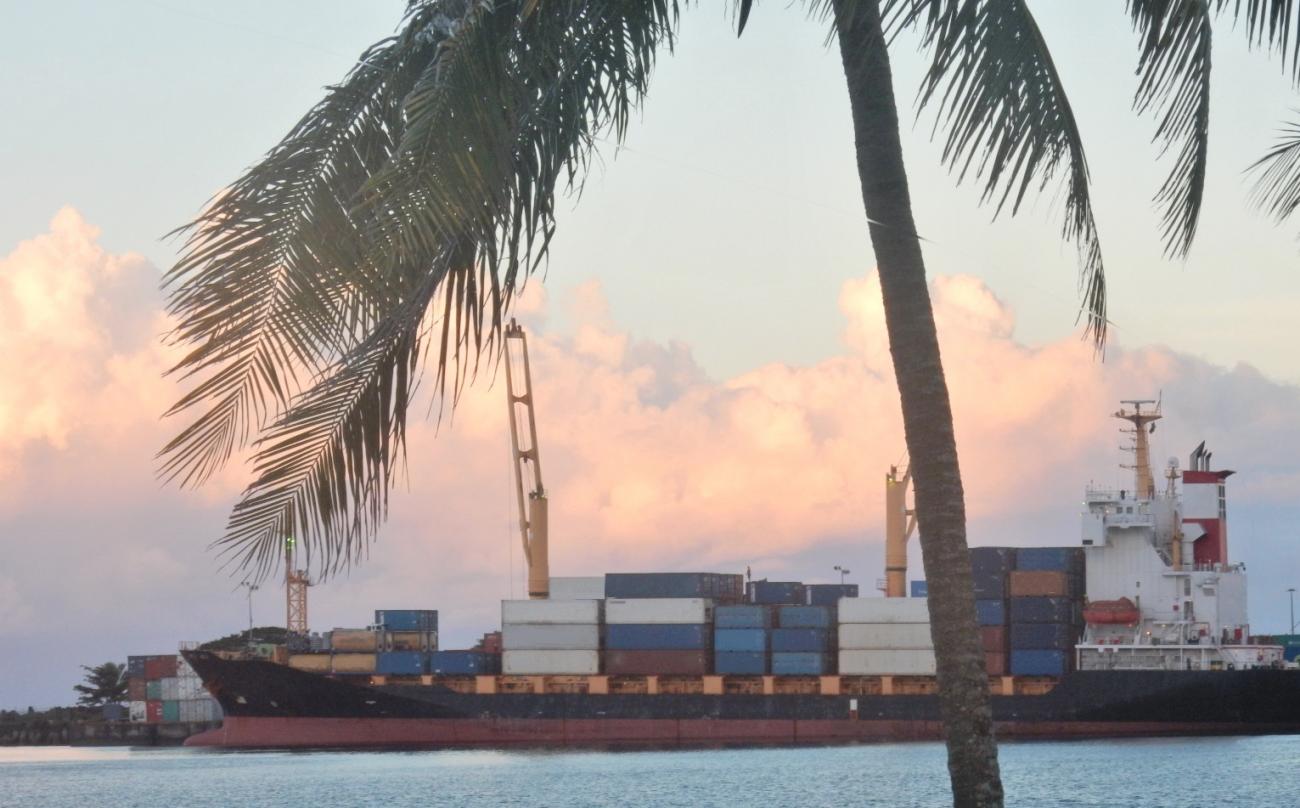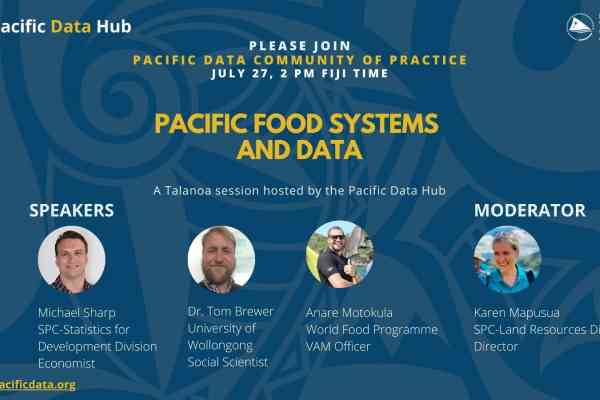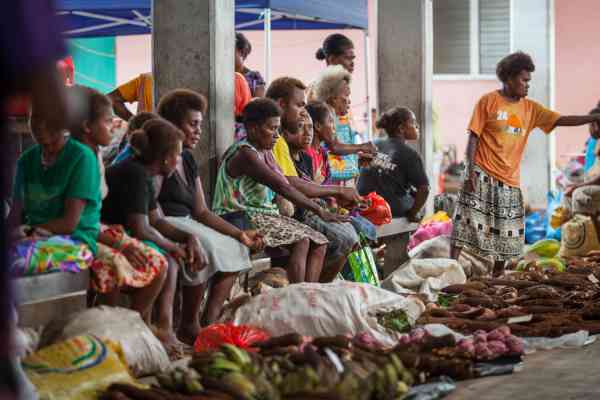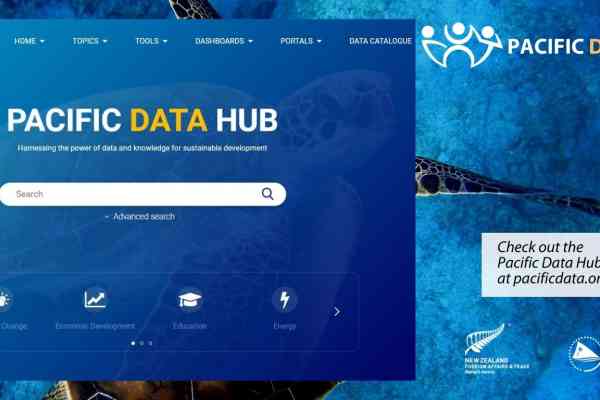Photo: Container Ship, Apia, Samoa - Credit: Michael Coghlan
Au cours du siècle écoulé, la nature du système alimentaire océanien a évolué : d’une alimentation abondante de subsistance, nous sommes passés à un système dépendant des importations de produits alimentaires essentiels et d’aliments très transformés. La transition s’est accélérée au cours des 20 à 30 dernières années sous l’influence de facteurs tels que la libéralisation des échanges, la croissance démographique, l’exode rural et l’évolution des modes de vie. Ainsi, le système alimentaire est désormais vulnérable aux instabilités des marchés internationaux, et la prévalence des maladies non transmissibles de la région est l’une des plus élevées au monde.
(contenu complet disponible en anglais uniquement)
The importance of good data: Pacific food trade
Over the past century, the basic characterisation of the Pacific food system has transitioned from one of subsistence and abundance to one that relies on imports of staples and highly processed foods. This transition has intensified over the past 20–30 years with drivers including trade liberalisation, population growth, rural-urban migration and changing lifestyles. Consequently, the food system is now vulnerable to the vagaries of international markets and the region has some of the highest rates of non-communicable diseases in the world.
To respond to this dilemma across national, sub-regional and regional levels requires reliable data on food and beverage imports and exports for Pacific Island countries and territories (PICTs). However, national food and beverage trade records across most PICTs contain irregularities that prevent any meaningful analysis or policy development. Having reliable food trade data would allow, for example, an understanding of how changing imports of sugars and processed foods contributes to health outcomes, or how COVID-19 has affected food security and the importation of different foods.
Research led by the Australian National Centre for Ocean Resources and Security at the University of Wollongong in collaboration with the Pacific Community and the University of Sydney, is working towards addressing this information gap by developing the Pacific Food Trade Database (PFTD).
This research funded by the Australian Centre for International Agricultural Research, uses source data from BACI (Base pour l’Analyse du Commerce International), an international trade database (found here: http://www.cepii.fr/CEPII/en/cepii/cepii.asp), that improves on United Comtrade data through several modifications, including standardising trade quantities and using both import and export records.
The research team has subsequently carried out a mixed methods cleaning approach, including consulting country experts on the plausibility of export records, carrying out a detailed elimination of implausible import records, and adjusting for implausible quantities, assuming other record elements were reliable.
The resulting PFTD covers all food and beverage trade records for 18 PICTs, including both import and export, quantity (tonnes) and value (USD) for roughly 570 commodities spanning the years 1995–2018.
The improvements in the data due to cleaning varied across PICTs and commodities – and was dramatic in some instances. A working paper outlining the database cleaning methods and how data cleaning has improved data quality is available here on the SPC Statistics for Development Division’s Innovation in SDD web page.
With so much of policy and decision making in the region centred around food and food security and the healthiness of diets, this database will enable national governments to have real conversations about the effect of food trade on their countries’ people and give them more choice based on evidence.
When complete, the database will be publicly available through the Pacific Data Hub.




